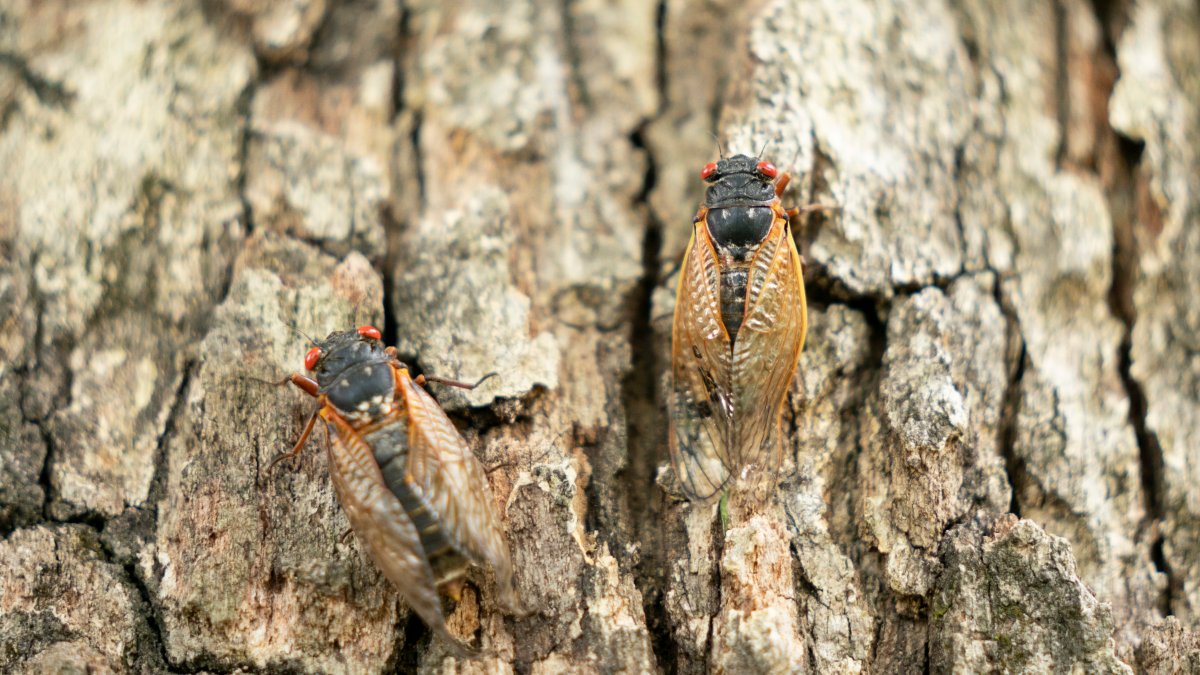Sure, cicadas have began rising within the Chicago space and elements of Illinois already, however that is solely the start.
The emergence has began sooner than common in Illinois however for these questioning when the area might see swarms of cicadas and the defeaning sounds which have sparked 911 calls in some states, that second has but to reach.
In line with consultants with the Insect Asylum, peak emergence is anticipated to reach in mid-Might for the Chicago space.
Sightings have already been reported to this point, however there are lots of components that can decide when cicadas will start popping out of the bottom en masse.
Cicadas usually emerge as the bottom begins to heat within the spring and early summer time, which means mid-to-late Might and into June.
“The periodical cicadas have been rising for the final week and a half,” Stephanie Adams, plant pathologist at Morton Arboretum in Lisle, stated Tuesday of Brood XIII, which can quickly overspread throughout the complete Chicago space. “We discovered them each out right here in our panorama and in addition in our East woods.”
In line with Adams, the emergence of the primary cicadas comes about two weeks forward of the historic common. It’s going to proceed to be sporadic, nonetheless, as soil temperature, mulch and turf grass all affect cicadas in another way. For instance, the soil is hotter close to pavement, so cicadas within the these spots are anticipated to emerge faster.
The best soil temperature for cicadas is 64 levels, however an increase in humidity ranges may also play a job, the Insect Asylum rpeorted.
Cicadas have a lifespan of roughly 4 weeks, which means the emergence is about to final by means of a minimum of mid-June.
“Analysis exhibits that the actual evening of the periodical cicadas’ emergence will depend on soil temperature,” a publish from the Nationwide Climate Service stated. “Cicada juveniles, or nymphs, emerge after a rainstorm when the soil temperature at 8 inches in depth exceeds roughly 64°F.”
Which broods are rising in 2024?
The 2 rising broods are Brood XIII and Brood XIX, which have not emerged concurrently in 221 years.
For the Chicago space, Brood XIII shall be most seen in elements of northern Illinois and Indiana, and presumably even in Wisconsin and Ohio, Dr. Gene Kritsky, dean of Behavioral and Pure Sciences at Mount St. Joseph College in Cincinnati, stated.
The Northern Illinois Brood itself is large, with a popularity for the “largest emergence of cicadas wherever,” in keeping with the College of Illinois.
In 1956, entomologists reported as many as 311 “emergence holes” per sq. yard in a forested floodplain close to Chicago, which consultants say translated to 1.5 million cicadas per acre, in keeping with the College of Illinois.
“When the cicadas begin dying and dropping from the timber later within the spring, there are massive numbers on the bottom, and the odor from their rotting our bodies is noticeable,” U of I studies. “In 1990, there have been studies from individuals in Chicago having to make use of snow shovels to clear their sidewalks of the lifeless cicadas.”
In the meantime, Brood XIX, or the Nice Southern Brood cicadas, have a extra widespread inhabitants, masking elements of Missouri, Illinois, Louisiana, North Carolina, Virginia and Maryland.
“Brood XIX is arguably the biggest (by geographic extent) of all periodical cicada broods, with data alongside the east coast from Maryland to Georgia and within the Midwest from Iowa to Oklahoma,” the College of Connecticut studies. “Though 13- 12 months cicadas are usually thought of to have a southern distribution, the northernmost recognized file of this brood is in Chebanse, IL, roughly 75 miles from Chicago’s Loop.”
The place in Illinois are the cicadas anticipated?
Throughout most of Illinois and the Chicago space a minimum of one of many two broods is more likely to emerge, however in a slim a part of the state, each might emerge on the identical time, in the identical place.
“That is just like the 12 months for Illinois,” cicada professional Catherine Dana, an affiliate with the Illinois Pure Historical past Survey, advised NBC Chicago. “We’re going to have cicadas rising everywhere in the state.”
This is a map of what to anticipate in Illinois, in keeping with knowledge from the USDA Forest Service.
“Someplace round Central Illinois, most likely like round Springfield, is what some researchers are predicting we might even see some overlap of those two … totally different broods,” Dana stated. “It isn’t going to be a big space. However there’ll seemingly truly be some mating taking place between these two broods, which goes to be actually thrilling.”
